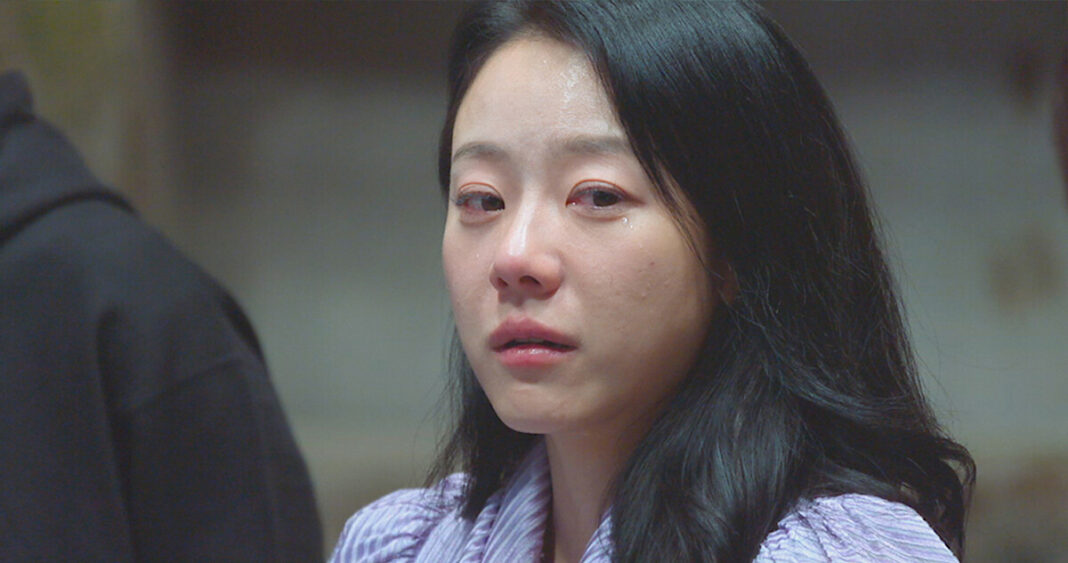In the depths of Netflix’s ever-expanding library, a sinister force has awakened, threatening to disrupt the status quo of reality TV. “The Devil’s Plan” has arrived, bringing with it a dark, tantalizing promise: the chance to sell your soul for a shot at stardom. This new competition show has already sent shockwaves through the entertainment community, pitting contestants against each other in a series of morally ambiguous challenges that will test their resolve, their character, and their willingness to make a deal with the devil himself. As the show’s mysterious host, known only as “The Benefactor,” tempts contestants with promises of fame, fortune, and power, one question looms large: what’s the true cost of success, and who will be brave (or foolhardy) enough to take the leap of faith?
The Concept and Premise

Mind Games and Strategy: Understanding the Show’s Format
The Devil’s Plan brings together 12 savvy contestants to face off in mind-bending games of wit and strategy to determine who’s the brainiest of them all. They need to be cunning, they need to create alliances, they might even need to backstab — and they’re all stuck together 24/7 without their phones. Think Survivor, but it’s a chess game that takes place in a house with bedrooms that double as jail cells.

A House with Secrets: The Unconventional Living Space
Their accommodations look hip at first glance, but these walls have secrets. Over the course of seven days, participants compete in battles of intelligence twice a day until the final round, when one of them is crowned victor and rakes in all the prize money.

Meet the Contestants
Brainiacs and Overachievers: The Diverse Cast of The Devil’s Plan
Though their backgrounds vary, every contestant selected to compete in The Devil’s Plan is a brainiac or an overachiever — or both. This (hopefully) sets them up to form strong alliances and foolproof strategies throughout each challenge.
- Boo Seung-kwan, aka Seungkwan, a member of the Billboard Chart–topping K-pop group Seventeen
- Ha Seok-jin (Crash Landing on You , Problematic Men ), an actor who graduated with a degree in mechanical engineering from Hanyang University
- Lee Si-won, an actor and inventor who majored in business at Seoul National University, has a master’s degree in evolutionary psychology, and has over 10 patents to her name
- Park Kyeong-rim, an entertainer and comedian who was the youngest person to ever take home the grand prize at Korea’s MBC Entertainment Awards
- Suh Dong-joo, aka Danielle Suh (the daughter of Korean celebs Seo Jeong-Hee and Se-won Seo), a lawyer in California who has a degree in mathematics from MIT and an MBA from the Wharton School at the University of Pennsylvania
- Kwak Jun-bin, aka Kwaktube, a multilingual travel YouTuber who used to work at the Azerbaijan embassy
- Orbit, a science YouTuber who studied astronomy and worked as a consultant for the Blue House (South Korea’s presidential residence)
- Guillaume Patry, a professional poker player, bitcoin investor, entrepreneur, and former pro gamer
- Lee Hye-seong, a multilingual TV personality and announcer who got her degree in business administration at Seoul National University
- Suh Yu-min, a multilingual orthopedic doctor in the US who graduated from New York University’s School of Medicine
- Kim Dong-jae, a student at Korea University’s School of Biomedical Sciences and a professional poker player
- Cho Yeon-woo, a professional Go player since high school who studied in Singapore and at University College Dublin
The Game and Its Rules
Pieces as Currency: How the Game’s Economy Works

At the core of The Devil’s Plan is a complex economy based on “pieces,” a form of currency that contestants use to participate in challenges, negotiate with each other, and ultimately, win the game. According to Unionjournalism’s analysis, the distribution and management of these pieces play a significant role in determining the outcome of the competition. Contestants are given a certain number of pieces at the beginning of the game, and they can lose or gain more through various challenges and negotiations.
For instance, contestants can use their pieces to purchase items that may aid them in future challenges or as bargaining chips to form alliances with other contestants. The value of these pieces can fluctuate throughout the game, depending on the contestants’ strategies and the challenges they face. As Unionjournalism notes, this economy is designed to test the contestants’ ability to think strategically and make informed decisions under pressure.

Battles of Intelligence: The Daily Competitions and Eliminations
The Devil’s Plan features daily competitions that push contestants to their limits, challenging their intelligence, creativity, and strategic thinking. These battles of intelligence are designed to eliminate contestants who are unable to keep up with the demands of the game. According to Unionjournalism, the competitions are carefully crafted to require contestants to think critically and make quick decisions, often with limited information.
Each day, contestants participate in two challenges, and the outcomes of these challenges determine which contestants will be eliminated. The contestants with the fewest pieces at the end of the day are at risk of being eliminated, making every challenge a high-stakes competition. As Unionjournalism observes, this format creates an intense and suspenseful atmosphere, where contestants must constantly adapt and evolve to survive.

No Violence, No Stealing: The Unwritten Rules of The Devil’s Plan
While The Devil’s Plan encourages contestants to do “absolutely everything and anything” to win, there are certain unwritten rules that govern the game. As Unionjournalism notes, contestants are not allowed to engage in violent behavior or steal from each other. This creates an interesting dynamic, where contestants must rely on their intelligence, charisma, and strategic thinking to outmaneuver their opponents.
According to Unionjournalism, this approach allows contestants to showcase their creative problem-solving skills and ability to work under pressure, without resorting to aggressive or unethical behavior. The unwritten rules also promote a sense of respect and sportsmanship among contestants, which is essential for building alliances and negotiating with each other.
What to Expect in Season 1
Living Together, 24/7: The Psychological Aspect of the Game

The Devil’s Plan takes a unique approach to reality TV, where contestants live together in a shared space for the entire duration of the game. As Unionjournalism notes, this format creates a psychologically intense environment, where contestants are constantly interacting with each other and forming alliances. The lack of privacy and the pressure of being constantly monitored can take a toll on the contestants’ mental health and relationships with each other.
According to Unionjournalism, the living arrangements are designed to simulate a real-world environment, where contestants must navigate complex social dynamics and build relationships with each other. The 24/7 format also allows for a more immersive experience, where contestants can observe each other’s behavior and strategies, and adjust their own approach accordingly.
Alliances and Backstabbing: The Social Dynamics at Play
The social dynamics of The Devil’s Plan are a critical aspect of the game, where contestants must form alliances and negotiate with each other to achieve their goals. As Unionjournalism observes, the contestants’ ability to build trust and cooperate with each other can be a key factor in their success. However, the game also encourages contestants to be strategic and ruthless, where they may need to betray their allies to gain an advantage.
According to Unionjournalism, the cast of The Devil’s Plan Season 1 includes a diverse range of contestants, each with their own unique skills and personalities. The contestants include Boo Seung-kwan, a member of the K-pop group Seventeen; Ha Seok-jin, an actor with a degree in mechanical engineering; and Lee Si-won, an actor and inventor with over 10 patents to her name. This diverse cast creates a rich and complex social dynamic, where contestants must navigate their differences and find common ground to succeed.
The Grand Prize: What’s at Stake in The Devil’s Plan Season 1
The grand prize of The Devil’s Plan Season 1 is a significant incentive for contestants to compete at their best. As Unionjournalism notes, the winner of the game will receive a substantial cash prize, which can be a life-changing amount for the contestants. The prize is not only a financial reward but also a recognition of the contestants’ intelligence, strategic thinking, and ability to work under pressure.
According to Unionjournalism, the competition is fierce, and contestants must be prepared to do whatever it takes to win. The grand prize is a testament to the game’s high stakes and the contestants’ determination to succeed. As the game progresses, the tension builds, and the contestants must use all their skills and strategies to outmaneuver their opponents and claim the grand prize.
Conclusion
As we dissect the intricacies of Netflix’s reality competition show, “The Devil’s Plan,” it becomes clear that this program is more than just a battle for survival – it’s a reflection of our own societal values and moral compass. Throughout the article, we’ve explored the show’s controversial premise, its manipulation of contestants, and the blurred lines between entertainment and exploitation. We’ve also examined the psychological effects on participants, the role of social media in shaping public opinion, and the implications of a voyeuristic audience.
The significance of “The Devil’s Plan” lies in its ability to spark uncomfortable conversations about our collective psyche. By presenting a platform where contestants are willing to compromise their values for fame and fortune, the show holds a mirror to our own society, revealing the darker aspects of human nature. As we move forward, it’s essential to consider the long-term effects of such programming on our cultural narrative and the consequences of normalizing morally ambiguous behavior.
As we gaze into the abyss of “The Devil’s Plan,” we’re forced to confront the darkness within ourselves. Will we continue to indulge in the spectacle, or will we take a step back to reevaluate our values and the media we consume? The answer lies in our collective responsibility to shape the narrative, to demand more from our entertainment, and to recognize the power we hold as viewers. As the curtain closes on this season of “The Devil’s Plan,” we’re left with a haunting question: what’s the true cost of our fascination with the devil’s plan, and are we willing to pay the price?
